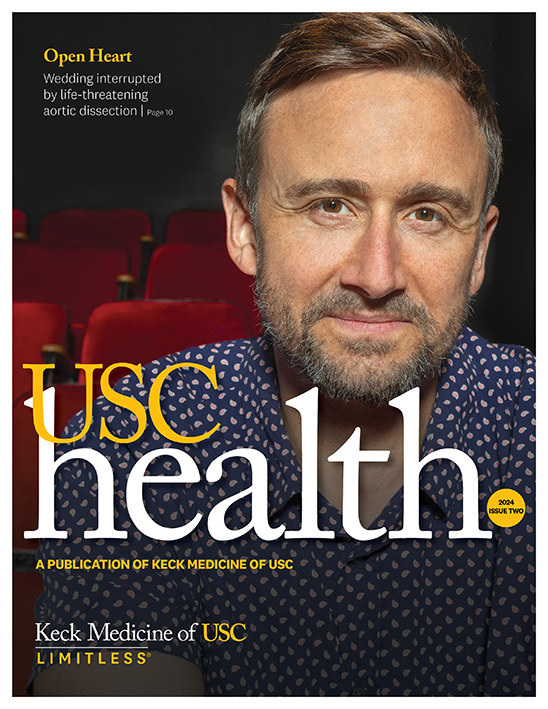
Cancer is most treatable when caught early. But which screenings do you need — and when?
Experts from Keck Medicine of USC share screenings you might need.
Breast Cancer
When to start: Age 40.
How often: Yearly.
Unless: Your doctor determines you have high risk.
Then: Ask your medical provider about when to start screening. In addition to yearly mammograms, you may benefit from additional imaging such as MRI or contrast mammograms.
“If you find a change between yearly mammograms, we encourage you to return sooner,” says Maria Nelson, MD, a surgical breast oncologist with Keck Medicine.
“When breast cancer is caught early enough, there’s a high chance for a cure.”
Cervical Cancer
When to start: Age 21.
How often: Every three to five years.
Unless: You have a weakened immune system (for example, from HIV or an organ transplant), or a history of abnormal cervical screenings.
Then: You may need more frequent screenings.
Vaccination is also important. “The HPV vaccine is approved for people up to the age of 46,” says Keck Medicine gynecologic oncologist Xiaoyue Mona Guo, MD. “It guards against the most common viruses that cause cervical cancer. It’s not total protection, but it helps a great deal.”
Skin Cancer
When to start: In your 20s.
How often: First two screenings six months apart, then once a year.
Unless: Family history, prior skin cancers or a history of bad sunburns.
Then: Never too early to start. You may need screenings every three to six months.
Skin cancer is the most common form of cancer in the United States, so Keck Medicine dermatologist David Sawcer, MD, PhD, also recommends self-screening between appointments. “That’s something we’ll teach you how to do when you come in,” he says.
Colorectal Cancer
When to start: Age 45.
How often: Every 10 years.
Unless: Family history, chronic inflammation of the large intestines or an abnormal colonoscopy result.
Then: Talk with your doctor. If a parent or sibling has had colorectal cancer, start 10 years younger than their age at diagnosis.
“The good thing about a colonoscopy is if we find polyps, we can remove them right then and there to analyze for cancer,” says Keck Medicine colorectal surgeon Sang W. Lee, MD. “It’s all taken care of at once, and it doesn’t need to be done very often.”
Prostate Cancer
When to start: Age 45.
How often: Every one to three years.
Unless: Risk factors like family history or certain gene mutations.
Then: It’s recommended to start around age 40 and screen annually.
“The newest guidelines recommend a PSA blood test for the initial screening,” says Anne Schuckman, MD, a urologic oncologist with USC Urology, “so if their prostate-specific antigen (PSA) levels are normal, a man won’t always need the digital rectal exam that patients often worry about.”
Topics


